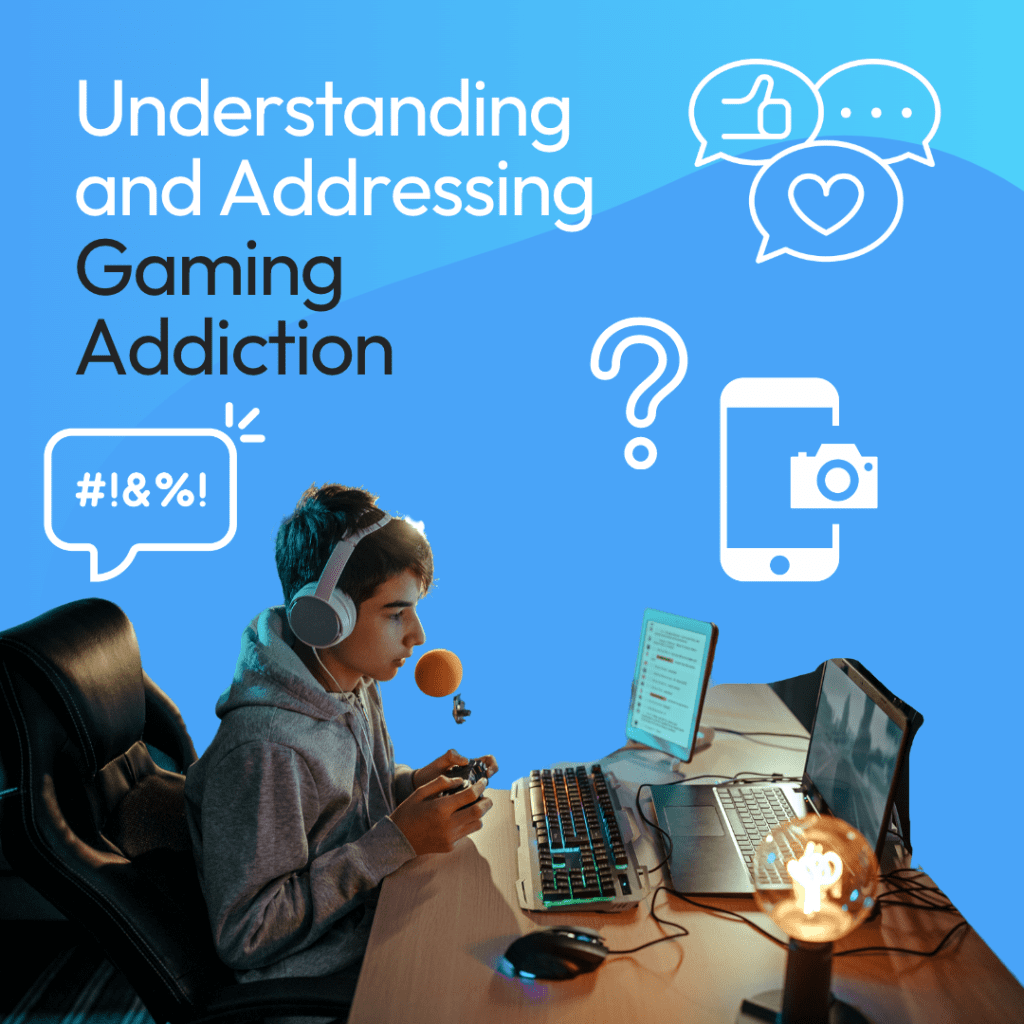As video games continue to grow in popularity, parents are increasingly concerned about the potential risks associated with excessive gaming. Gaming addiction has become a prominent issue, particularly among children. In this blog post, we aim to shed light on the topic of gaming addiction, its signs and symptoms, and how parents can effectively address and prevent it. By understanding the factors that contribute to addiction and implementing strategies to promote healthy gaming habits, parents can play a crucial role in their child’s well-being.
Recognizing Gaming Addiction
Gaming addiction, also known as internet gaming disorder, is characterized by an excessive and compulsive engagement in video games, leading to negative consequences in various areas of life. It often manifests as a preoccupation with gaming, withdrawal symptoms when not playing, loss of interest in other activities, and impaired social functioning. It’s important to distinguish between passionate gaming and addiction. Not all children who enjoy gaming excessively are addicted, but when gaming begins to interfere with their daily lives, relationships, and overall well-being, it’s time to address the concern.
Understanding the Causes
Several factors contribute to the development of gaming addiction. For some children, gaming provides an escape from real-life problems or difficult emotions, acting as a coping mechanism. The immersive and rewarding nature of video games can create a cycle of instant gratification and reinforcement, making it challenging for children to disengage. Additionally, online gaming environments foster social connections, and the fear of missing out (FOMO) can perpetuate the addictive behavior.

Preventing and Addressing Gaming Addiction
Prevention and early intervention are crucial when it comes to gaming addiction. Here are some strategies for parents to consider:
- Set clear boundaries: Establish and enforce reasonable limits on gaming time. Encourage your child to engage in a variety of activities, including hobbies, physical exercise, and social interactions.
- Encourage open communication: Maintain an open dialogue with your child about their gaming habits. Talk about the potential risks of excessive gaming and help them understand the importance of a balanced lifestyle.
- Monitor and supervise: Keep an eye on your child’s gaming activities, both in terms of duration and content. Utilize parental control features and consider placing the gaming console or computer in a common area to discourage excessive and unsupervised gaming.
- Promote alternative activities: Encourage your child to explore other interests and hobbies. Provide opportunities for physical exercise, creative pursuits, and face-to-face social interactions. Engage in these activities together to foster bonding and demonstrate the value of a well-rounded lifestyle.
- Lead by example: Be mindful of your own screen time and demonstrate healthy habits. Show your child that there are numerous fulfilling activities beyond the digital realm.
- Seek professional help if needed: If you suspect your child is struggling with gaming addiction, consider seeking guidance from a mental health professional with expertise in addiction and gaming disorders. They can provide tailored support and interventions.
Conclusion
Gaming addiction is a real concern for parents in today’s digital era. By understanding the signs, addressing risk factors, and implementing preventative measures, parents can help their children develop a healthy relationship with gaming. Balancing screen time, promoting alternative activities, and fostering open communication are vital in creating a supportive environment that prioritizes well-being over excessive gaming.